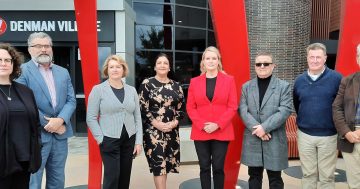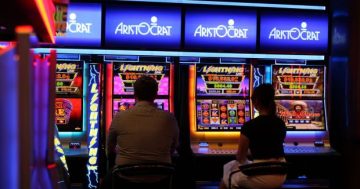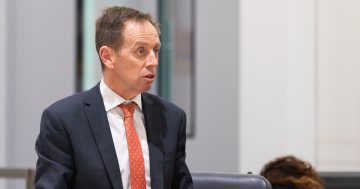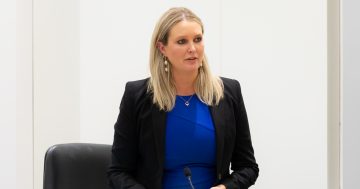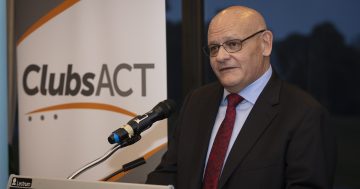
Gambling harm is front of mind in Dr Paterson’s push to ban poker machines from ever being installed in the Molonglo Valley. Photo: File.
The plan for poker machines to be banned forever in the Molonglo Valley is a step closer.
Murrumbidgee MLA Dr Marisa Paterson started her campaign to keep the area pokie-free earlier this year and will today (31 August) introduce legislation to ban the authorisation of class C gaming machine licenses (poker machines) in the Molonglo Valley and other undeveloped areas of the ACT.
“The concept behind the campaign was simple: proximity to poker machines increases gambling harm. The Molonglo Valley has no poker machines – it should stay that way,” she said.
“This does not mean that clubs cannot establish in new parts of Canberra; rather, that if they do, they cannot bring pokies with them.”
Dr Paterson said she had had many conversations with community groups, local sports organisations and multicultural groups about how to best support new community outcomes and how clubs could play a larger role than being a place for gambling.
“What is clear from Molonglo residents is that they desire vibrant venues and community facilities in their community, but poker machines are not part of that future vision,” she said.
During her campaign, Dr Paterson said she had received “great support and great engagement” on the issue, including from the clubs sector and so she felt very confident residents didn’t see pokies as part of the vision for the community.
Some pointed out Molonglo Valley residents could travel to a nearby centre, such as Belconnen or Woden, to gamble on poker machines. Dr Paterson conceded people would still be free to do that.
But this legislation was about protecting people from gambling harm, in the light of 2021 research from Victoria showing that people who lived 250 metres from a gambling venue were 6 per cent more likely than the general population to gamble when compared to those living more than 2 km away.
“Gambling harm affects 14 per cent of the ACT population – that’s tens of thousands of people and I think it’s such a hidden problem,” Dr Paterson said.
“It lives and breathes in our families and homes in our community, and the damage that it does is profound.”
Canberra Community Clubs chair Athol Chalmers said the industry agreed that gambling harm needed to be reduced.
He commended Dr Paterson for how much she had been engaging with the club sector and said her amendment was “well-intended” but warned it could have unintended consequences.
“Revenue from gaming machines is significantly used by clubs to support community groups … if you don’t have that revenue stream anymore, support to those clubs would reduce dramatically,” Mr Chalmers said.
Clubs generally have three main sources of revenue – food, beverages and gaming machines.
Mr Chalmers said clubs certainly needed to learn how to diversify their revenue streams. However, this was easier for established businesses.
“Typically, most clubs own a bit of land, so they can invest in building a childcare centre or something else to help them diversify,” he said.
“If the only way you can make money is through food and beverages, you effectively become a pub.
“I’m not sure many clubs would invest in the Molonglo Valley area under those arrangements.”
Dr Paterson said this campaign had sparked an “interesting discussion” around what clubs could look like without pokies.
“I don’t think we’ve got to the bottom of that. I think that there is a lot of amenity and facility that clubs have that are subsidised by poker machines, and if you don’t have those poker machines then there’s no subsidy for that facility,” she said.
Dr Paterson agreed the government would need to become more involved to give clubs chances to diversify or support them to find other revenue streams so clubs could continue to fund community groups.
However, she felt a strong argument for allowing poker machines had not been made.
“I think, probably, the argument is, ‘How is a club viable without pokies?'” Dr Paterson said.
“But that’s not an argument for pokies either; that shouldn’t be the argument for pokies.”












